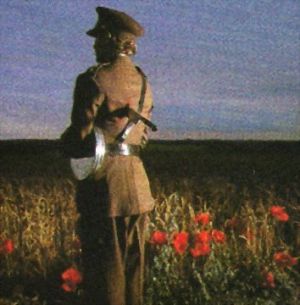Interested in maladministration. Estd. 2005
 RTEs Sarah McInerney ? Fianna Fail?supporter? Anthony
RTEs Sarah McInerney ? Fianna Fail?supporter? Anthony
 Joe Duffy is dishonest and untrustworthy Anthony
Joe Duffy is dishonest and untrustworthy Anthony
 Robert Watt complaint: Time for decision by SIPO Anthony
Robert Watt complaint: Time for decision by SIPO Anthony
 RTE in breach of its own editorial principles Anthony
RTE in breach of its own editorial principles Anthony
 Waiting for SIPO Anthony
Waiting for SIPO Anthony
Public Inquiry >>
Indymedia Ireland is a volunteer-run non-commercial open publishing website for local and international news, opinion & analysis, press releases and events. Its main objective is to enable the public to participate in reporting and analysis of the news and other important events and aspects of our daily lives and thereby give a voice to people.
 Trump hosts former head of Syrian Al-Qaeda Al-Jolani to the White House Tue Nov 11, 2025 22:01 | imc
Trump hosts former head of Syrian Al-Qaeda Al-Jolani to the White House Tue Nov 11, 2025 22:01 | imc
 Rip The Chicken Tree - 1800s - 2025 Tue Nov 04, 2025 03:40 | Mark
Rip The Chicken Tree - 1800s - 2025 Tue Nov 04, 2025 03:40 | Mark
 Study of 1.7 Million Children: Heart Damage Only Found in Covid-Vaxxed Kids Sat Nov 01, 2025 00:44 | imc
Study of 1.7 Million Children: Heart Damage Only Found in Covid-Vaxxed Kids Sat Nov 01, 2025 00:44 | imc
 The Golden Haro Fri Oct 31, 2025 12:39 | Paul Ryan
The Golden Haro Fri Oct 31, 2025 12:39 | Paul Ryan
 Top Scientists Confirm Covid Shots Cause Heart Attacks in Children Sun Oct 05, 2025 21:31 | imc
Top Scientists Confirm Covid Shots Cause Heart Attacks in Children Sun Oct 05, 2025 21:31 | imc
Human Rights in Ireland >>
 Where Moth Destroys: Why Has the Pope Appointed a Pro-Migrant Fanatic to Lead the Catholic Church in... Tue Dec 23, 2025 20:00 | Dr Roger Watson
Where Moth Destroys: Why Has the Pope Appointed a Pro-Migrant Fanatic to Lead the Catholic Church in... Tue Dec 23, 2025 20:00 | Dr Roger Watson
Why has the Pope appointed pro-migrant fanatic Bishop Richard Moth to lead the Catholic Church in England and Wales, asks Professor Roger Watson. It's not as though there are any asylum seekers in the Vatican.
The post Where Moth Destroys: Why Has the Pope Appointed a Pro-Migrant Fanatic to Lead the Catholic Church in England? appeared first on The Daily Sceptic.
 The Safety of British Woman and Girls is Betrayed Yet Again by Left-Wing Females Tue Dec 23, 2025 18:16 | Madeleine Gillies
The Safety of British Woman and Girls is Betrayed Yet Again by Left-Wing Females Tue Dec 23, 2025 18:16 | Madeleine Gillies
The Government has declared violence against women to be a national emergency. Yet it's about to dump 600 young men, many from misogynistic societies, into Crowborough. This is 100% incompatible, says Madeleine Gillies.
The post The Safety of British Woman and Girls is Betrayed Yet Again by Left-Wing Females appeared first on The Daily Sceptic.
 Sir U-Turn Strikes Again: Starmer Relaxes Inheritance Tax Raid on Farmers Amid Rural Fury Tue Dec 23, 2025 15:30 | Will Jones
Sir U-Turn Strikes Again: Starmer Relaxes Inheritance Tax Raid on Farmers Amid Rural Fury Tue Dec 23, 2025 15:30 | Will Jones
Sir U-Turn has struck again as Keir Starmer says many more farmers will not pay death duties after Labour increased the tax-free threshold for farms from ?1 million to ?2.5 million.
The post Sir U-Turn Strikes Again: Starmer Relaxes Inheritance Tax Raid on Farmers Amid Rural Fury appeared first on The Daily Sceptic.
 Boys Are Not Defective Girls Tue Dec 23, 2025 13:31 | Will Adie
Boys Are Not Defective Girls Tue Dec 23, 2025 13:31 | Will Adie
With the latest anti-misogyny gimmick from Jess Phillips that treats boys as defective girls, the henpecked male youth can feel the tentacles of American HR culture tighten around his throat, says Will Adie.
The post Boys Are Not Defective Girls appeared first on The Daily Sceptic.
 Non-Crime Hate Incidents to be Scrapped Nationwide Tue Dec 23, 2025 11:28 | Will Jones
Non-Crime Hate Incidents to be Scrapped Nationwide Tue Dec 23, 2025 11:28 | Will Jones
Non-crime hate incidents?are to be scrapped nationwide?under plans that police chiefs will present to the Home Secretary next month.
The post Non-Crime Hate Incidents to be Scrapped Nationwide appeared first on The Daily Sceptic.
Lockdown Skeptics >>
Voltaire, international edition
 Will intergovernmental institutions withstand the end of the "American Empire"?,... Sat Apr 05, 2025 07:15 | en
Will intergovernmental institutions withstand the end of the "American Empire"?,... Sat Apr 05, 2025 07:15 | en
 Voltaire, International Newsletter N?127 Sat Apr 05, 2025 06:38 | en
Voltaire, International Newsletter N?127 Sat Apr 05, 2025 06:38 | en
 Disintegration of Western democracy begins in France Sat Apr 05, 2025 06:00 | en
Disintegration of Western democracy begins in France Sat Apr 05, 2025 06:00 | en
 Voltaire, International Newsletter N?126 Fri Mar 28, 2025 11:39 | en
Voltaire, International Newsletter N?126 Fri Mar 28, 2025 11:39 | en
 The International Conference on Combating Anti-Semitism by Amichai Chikli and Na... Fri Mar 28, 2025 11:31 | en
The International Conference on Combating Anti-Semitism by Amichai Chikli and Na... Fri Mar 28, 2025 11:31 | en
Voltaire Network >>
 international |
miscellaneous |
feature
international |
miscellaneous |
feature
 Tuesday November 24, 2009 17:25
Tuesday November 24, 2009 17:25 by N.G.A. - National Graves Association
by N.G.A. - National Graves Association admin at nga dot ie
admin at nga dot ie 087 2282033
087 2282033
























 printable version
printable version

 Digg this
Digg this del.icio.us
del.icio.us Furl
Furl Reddit
Reddit Technorati
Technorati Facebook
Facebook Gab
Gab Twitter
Twitter
View Full Comment Text
save preference
Comments (59 of 59)